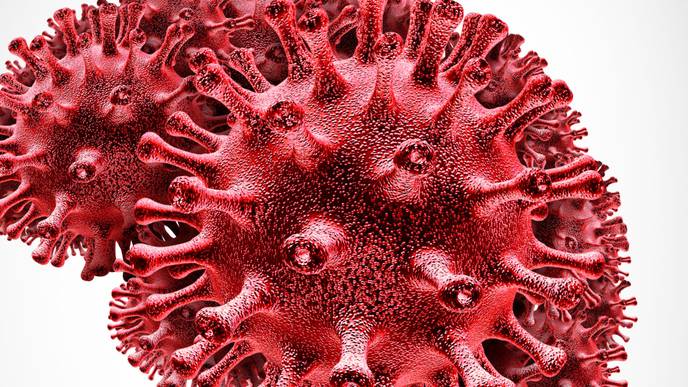Study Finds BIPOC Individuals Bear Greater Post-COVID Burdens

01/31/2024
A study appearing in Frontiers in Public Healthreports that BIPOC individuals who were infected with COVID-19 experienced greater negative aftereffects in health and work loss than did similarly infected white participants.
Despite similar symptom prevalence, Hispanic participants compared to non-Hispanic participants and Black, Indigenous, and people of color (BIPOC) participants compared to white participants had more negative impacts following a COVID-19 infection in terms of health status, activity level and missed work, the authors wrote.
The authors investigated the longer-term impacts of acute COVID-19 infection across ethnic and racial groups. They longitudinally followed 2,402 U.S. individuals first infected between 2020 and 2022.
"We want to understand what is driving these differences, with the goal of advancing health equity after infection," said lead author Dr. Kelli O'Laughlin, associate professor of emergency medicine and of global health at the University of Washington School of Medicine.
The authors surmised that some of these negative outcomes among BIPOC participants—when compared with those of non-Hispanic and white participants—may be associated with socioeconomic disparities.
"We found that several minority populations reported worse overall health, lower activity levels or more missed work months after infection. While we don't know what caused these different impacts, we know that these populations can have a harder time accessing health care, which may complicate their recovery," added Kari Stephens, a professor of family medicine and of biomedical informatics and medical education at the University of Washington School of Medicine.
"Certain demographic groups might be overrepresented in front-line work industries, where they had no option to work from home to reduce their risk of infection," O'Laughlin said.
Other differences across population groups might stem from the lack of health insurance, mistrust of the medical establishment, cultural or institutional racism, medical deserts, or the lack of safe parks or green spaces where study participants live, she said.
Study participants were asked to record their symptoms from a list of 22, including loss of taste, shortness of breath and sore throat. While the investigators found few symptomatic differences across the groups at three- and six-months after infection, there were significant health effects and work loss among BIPOC populations.
Among the findings:
- Hispanic participants were about twice as likely as non-Hispanic counterparts to self-report fair or poor health and much lower activity levels at three months. These differences, however, were no longer present at six months.
- Compared with white participants, those who identified as "other/multiple race" were nearly twice as likely to report fair or poor health and describe that they were somewhat or much less active at three months. These differences persisted at six months. The "other/multiple race" group included individuals identifying as American Indian or Alaska Native, Native Hawaiian or Pacific Islander or selecting two or more races.
- Compared with white participants, Asian participants' chances of reporting fair/poor health was similar at three months, but Asian participants were more likely to report fair/poor health at six months.
- Reports of more than five missed workdays was similar across all race groups at three months; at six months, however, reports of missed work were much higher among Black participants (by almost three times) and other/multiple race participants (by more than two times).
More information: Kelli N. O'Laughlin et al, Ethnic and racial differences in self-reported symptoms, health status, activity level, and missed work at 3 and 6 months following SARS-CoV-2 infection, Frontiers in Public Health (2024). DOI: 10.3389/fpubh.2023.1324636
Citation: Study finds BIPOC individuals bear greater post-COVID burdens (2024, January 31) retrieved 31 January 2024 from https://medicalxpress.com/news/2024-01-bipoc-individuals-greater-covid-burdens.html
This document is subject to copyright. Apart from any fair dealing for the purpose of private study or research, no part may be reproduced without the written permission. The content is provided for information purposes only.

Facebook Comments